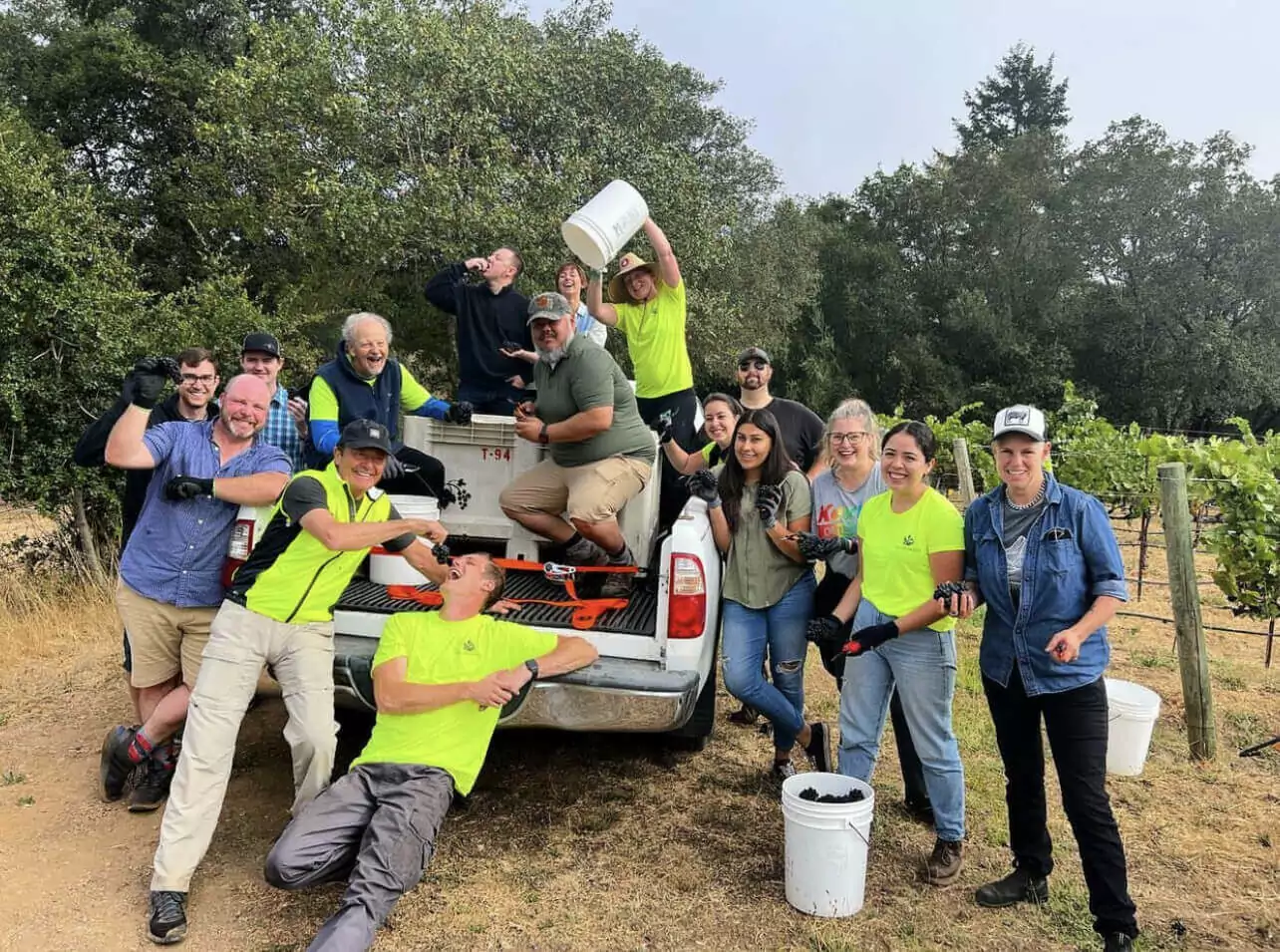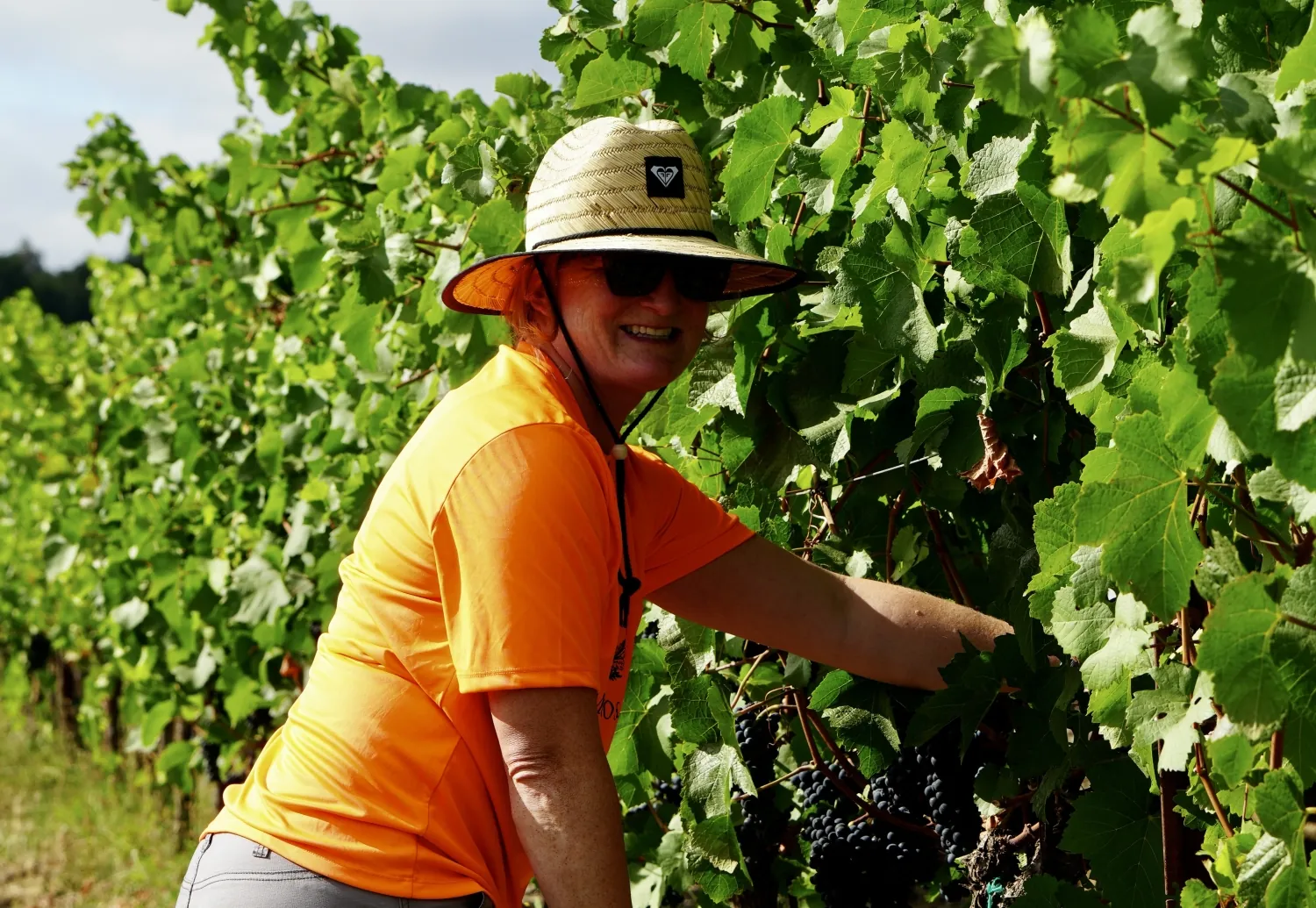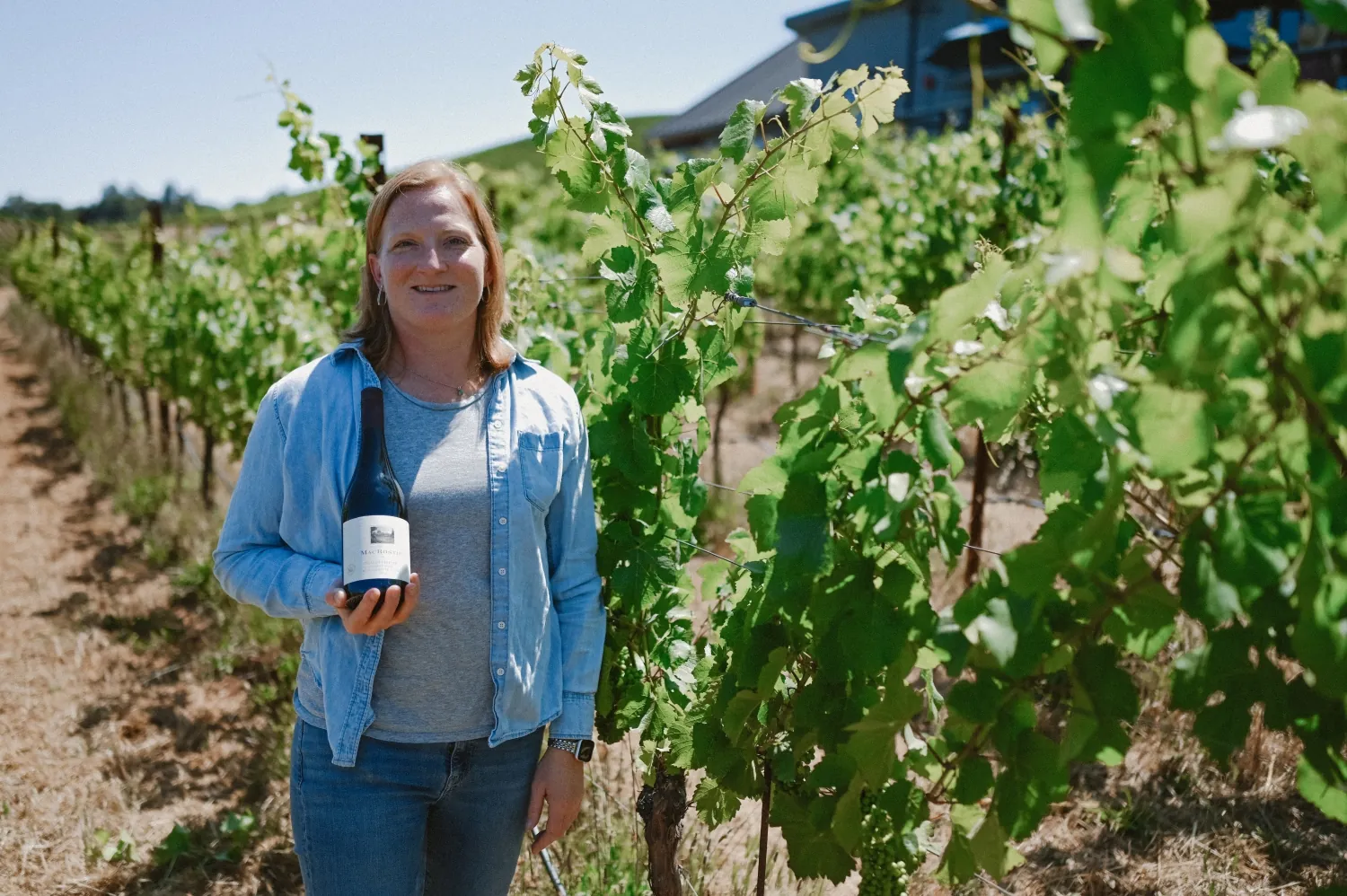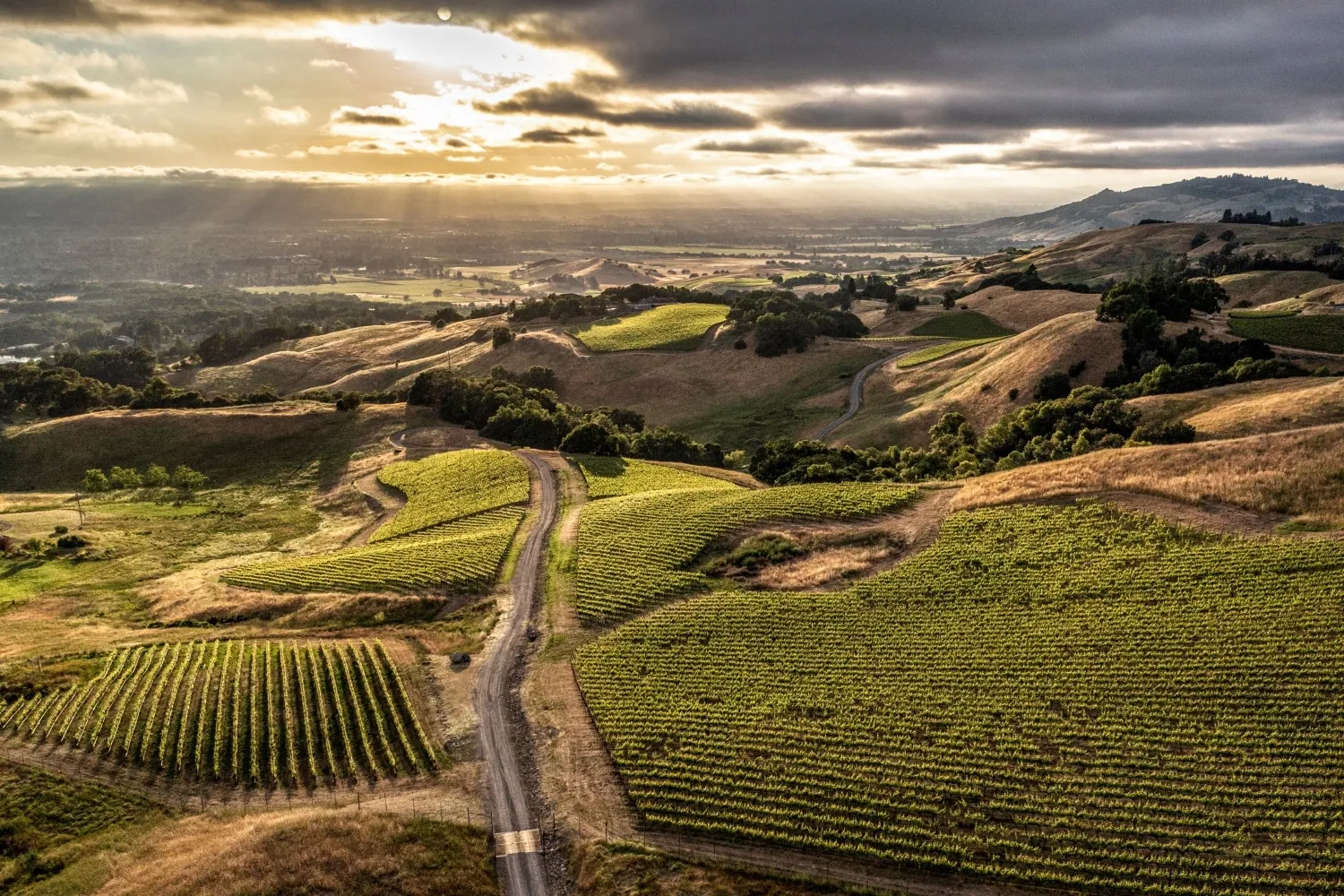Harvest 2022 started in the pre-dawn hours on August 19th at our Thale’s Estate Vineyard. The Pinot Noir block picked is destined for future stardom in our sparkling wine program. Make sure to keep checking our 2022 MacRostie Harvest Season blog to see behind-the-scenes content throughout the entire Harvest season!

Night Pick at Thale’s Vineyard
Captured here is our crew harvesting Thale’s Vineyard in the middle of the night. Team members use the light of headlamps to remove grape clusters and drop them into lug boxes. Pickers dump their individual lug boxes into half-ton macro bins where leaves are pulled out and thrown away. Next, the filled bins head for the winery, either by tractor, trailer, or even by truck.
The goal is to get the grapes to the crush pad before daytime temperatures have a chance to start fermentation prematurely during transport. And there you have it! A half-ton bin of Russian River Pinot Noir is ready for processing in the morning.
What Happens on the Crush Pad?
A forklift picks up half-ton bins of Pinot Noir grapes and dumps the fruit – stems and all – onto the sorting table’s moving conveyor belt. Team members sort through the grapes by hand, removing leaves and MOG (materials other than grapes) before the grape clusters drop into a mechanical destemmer.
The separated grapes fall directly into a fermentation tank while the steps head for organic recycling.
Fermentation
The Pinot Noir grapes and the juice spend a couple of days “cold soaking” in a chilled room … to help bring color and flavor to the juice before fermentation starts. During that time, the grapes’ skins and seeds rise to the top of the fermenter and form a thick cap.
After the cold soak, the juice is extracted from the bottom of the fermentation tank and sprayed on top of the cap to get ready for the inoculation (addition) of yeast. This action is called “pump over.”
Then a mixture of yeast, water, and some grape juice is poured on top of the wet cap and the tank is covered with its plastic lid, and fermentation starts. The yeast converts the sugar in grape juice into two products: alcohol and carbon dioxide. The carbon dioxide pushes the skins to the top of the fermenter where they form a cap that must be broken up twice each day during “punch-down.”
The below video shows the old-fashioned manual way of doing punch-down and the mechanized way of doing it with a hydraulic press.
Every time a punch-down is performed, measurements are taken to track the progress of the fermentation… watching the Brix levels (the percentage of sugar in the fermenting juice) drop as the yeast turns the juice into alcohol. The temperature is also tracked to make sure the fermentation isn’t going too quickly or too slowly.
At the end of each punch-down, a blanket of carbon dioxide “snow” is spread on top of the fermenter. The heavier-than-air CO2 blanket and the fermenter’s plastic lid keep oxygen out of the chemical process that’s taking place inside the fermenter.
Fermentation can last five to 10 days before all the sugar is converted into alcohol.
Press
When the fermentation process comes to an end—typically after 7 to 10 days for a MacRostie Pinot Noir—the “free-run” wine is pumped from the fermenter into a stainless-steel holding tank. The grape skins—along with the remaining wine—are then dumped from the fermenter into the press.
An inflatable bladder inside the press gently squeezes the skins to release the last bit of the wine. That pressed wine briefly joins the free-run wine in the holding tank while the French oak barrels are all steam cleaned. The oak barrels are slowly filled by hand under the watchful eye of the cellar worker. Then a forklift takes the 60-gallon barrels to the cellar until it’s time for bottling. A 60-gallon barrel holds about 300 bottles of wine. Stay tuned for the next harvest update!









